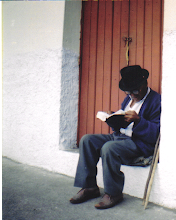Born Again
While Jesus is the Son of God, He is also the Father of all those who are born again through His atoning sacrifice. (Mosiah 5:7; 15:2-8.) And we all must be born again to be worthy to go home. Like our physical birth, our spiritual rebirth requires conception and gestation before we emerge as new beings amidst blood, water, and spirit. Because we are children of God, there is a seed of divinity within us. When it’s fertilized by the preaching of the gospel, it will begin to “swell within [us].” (Alma 32:28.) Soon we will have a testimony that the seed is good, but will need much more growth and development, for merely receiving a testimony of the truth is not rebirth.
This was never more obvious than it was with Peter. Peter had a powerful testimony of Jesus and His atonement. He had witnessed his Master heal the sick, raise the dead, walk on water, calm the troubled sea, feed the multitudes with limited food, and cast out devils. And being present at these miracles allowed Peter to believe until he received from Heavenly Father the perfect knowledge that “[Jesus is] the Christ, the Son of the living God.” (Matthew 16:16.) Notwithstanding Peter’s powerful testimony, Christ, at the last supper, admonished him, “when thou art converted, strengthen thy brethren.” (Luke 22:32.) Peter was still in gestation despite his deep love for and desire to follow the Savior. It was not until after sore repentance—necessitated by his denials of knowing Jesus—and the day of Pentecost when the gift of the Holy Ghost fell upon him that Peter became the rock who defied the leaders of the Jews and continued “speak[ing] the things which [he] had seen and heard” (Acts 4:20) when just a few months before he feared to confess his association with Jesus as he spoke to a common maid and two anonymous men. (Luke 22:54-62.)
While all the details of Peter’s spiritual rebirth remain concealed by history, we see that faith in the Atonement and Resurrection of Jesus Christ, sincere repentance, and obedience to the commandments allowed the Holy Ghost to work in Peter until he “[became] a saint through the atonement of Christ the Lord.” (Mosiah 3:19.)
Without Christ’s atoning blood, entering into the waters of baptism and keeping the covenants made therein, and the gift of the Holy Ghost, none of us can become saints. These three elements intertwine:
“By the water[s] [of baptism we] keep the commandment[s],” (Moses 6:60) thus placing us in the “power of the Redeemer.” (Helaman 5:11.) In short, as we forsake our sins, we submit our wills to the will of the Father. Without such submission, God cannot save us because He will not interfere with our agency. (Alma 42:13, 27.) And as we submit our wills to God’s, we allow the Holy Ghost to be with us always.
“By the Spirit [we] are justified.” (Moses 6:60). Because He is a member of the Godhead, the Holy Ghost is God. And “no unclean thing can dwell in the presence of God.” (3 Nephi 27:19.) Therefore, to feel the Spirit, He must first purge us of our sins. His justifying influence actually cleanses us like the garments of the Nephite disciples who prayed to receive the Holy Ghost. (See 3 Nephi 19.)
“By the blood [we] are sanctified.” (Moses 5:60.) We constantly stain our clothing with sin. But through the atonement, the Holy Ghost offers us a change of clothes so that we can enter His presence and He can speak to us and direct us. Two things can happen with our soiled clothing: either the Holy Ghost will take them to the Savior to be “cleansed from all stain through the blood of [Jesus Christ],” (Alma 5:21) or He will return them to us still soiled and stained because we would not let Jesus cleanse them. Obviously, our clothing will need washed many times throughout life. But we can know that we have been born again when we have lost the desire to sin (Mosiah 5:2) and when any stains on our clothing come from inadvertent stumbles and slips—which leave grass stains on our elbows and knees—rather than from wallowing in the mire of the world.
Very few of us, myself included, have truly been born again. I still have my favorite sins. Thankfully, they are not as serious as Corianton’s, but I still struggle, like Shiblon, with pride and with bridling my passion. (See Alma 38-42.) Yet I know that I must give away all my sins to truly know God (Alma 22:18) and find solace in the promise that as I strive to repent and submit to the Savior, immediately He will begin sanctifying me through the blessings of the atonement. (Alma 34:31.) One day, I will be born again; my heart will be changed, and I will be ready to go home.

No comments:
Post a Comment